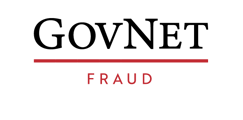In the intricate world of local government fraud detection, staying compliant with regulatory requirements is paramount. This blog post explores the challenges posed by the complex regulatory landscape faced by fraud detection teams in local government, highlighting the need to stay abreast of evolving laws and regulations while ensuring effective fraud detection and investigation practices.
Understanding the Regulatory Maze
Local government fraud detection teams operate within a web of regulations and compliance requirements, spanning from local ordinances to national legislation. Navigating this regulatory maze requires a deep understanding of the legal framework governing public sector operations, including procurement rules, financial regulations, and data protection laws.
Staying Abreast of Evolving Laws and Regulations
The regulatory landscape is in a constant state of flux, with laws and regulations frequently being updated or amended. Fraud detection teams must stay vigilant and proactive in monitoring changes in legislation relevant to their operations. This includes keeping track of new directives, guidance documents, and judicial rulings that may impact fraud detection practices.
Ensuring Compliance in Investigations
Compliance with regulatory requirements is not optional when conducting fraud investigations in local government. Fraud detection teams must adhere to strict procedural guidelines and legal standards to ensure that evidence obtained during investigations is admissible in court. This includes respecting individuals' rights, following chain of custody protocols, and maintaining confidentiality where required by law.
Overcoming Regulatory Hurdles
The complex regulatory landscape presents numerous challenges for fraud detection teams, including conflicting regulations, ambiguous legal interpretations, and jurisdictional complexities. Overcoming these hurdles requires a combination of legal expertise, stakeholder engagement, and innovative problem-solving approaches.
Leveraging Technology for Compliance
Technology can play a crucial role in helping fraud detection teams navigate the regulatory landscape more effectively. Compliance management software, data analytics tools, and digital documentation systems can streamline regulatory compliance processes, ensuring that investigations adhere to legal requirements and reporting obligations are met.
Collaborating with Regulatory Authorities
Effective collaboration with regulatory authorities is essential for ensuring compliance and addressing regulatory challenges. Fraud detection teams should establish open lines of communication with relevant regulatory agencies, seek guidance when needed, and proactively engage in discussions on regulatory developments that may impact their operations.
Conclusion
Navigating the complex regulatory landscape in local government fraud detection requires a combination of legal acumen, regulatory expertise, and technological innovation. By staying informed about evolving laws and regulations, ensuring compliance in investigations, and fostering collaboration with regulatory authorities, fraud detection teams can overcome regulatory challenges and uphold the highest standards of integrity and accountability in their work.

Nicole Lummis
After a career in Project Management, I realised how important it was for me to pursue a career with a more creative career path. I have a passion for creating engaging digital content whether through written content or the use of image, graphics or videos.




